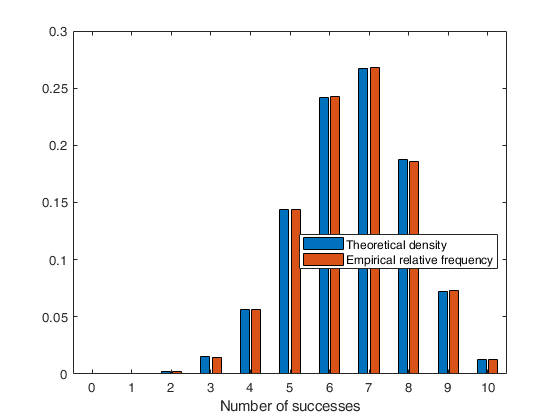WNChygernd
WNChygernd random arrays from the Wallenius non central hypergeometric distribution.
Syntax
Description
Generate a random number from Wallenius non central hypergeometric distribution.r
=WNChygernd(M,
K,
n,
odds)
Examples
Input Arguments
Output Arguments
References
Fog, A. (2008), Calculation Methods for Wallenius' Noncentral Hypergeometric Distribution, "Communications in Statistics - Simulation and Computation", Vol. 37, pp. 258-273.
 Comparison density and random numbers.
Comparison density and random numbers.